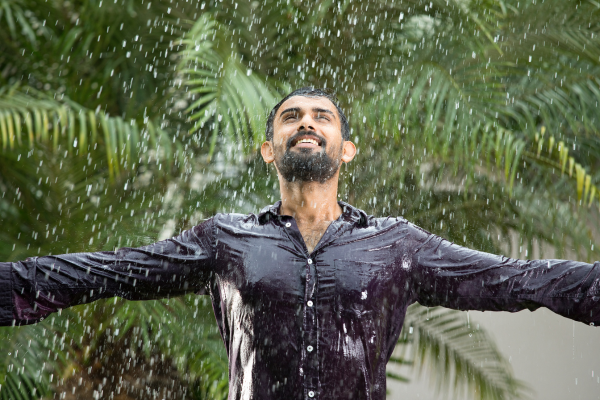
If you were the Prime Minister, I doubt you would choose to make the most important announcement of your year standing in the pouring rain getting drenched. Whatever your political leanings, I suspect you reckon that Rishi Sunak looked a complete drip when he announced the UK would go to the polls on 4th July.
Inevitably, his colleagues have leapt to his defence saying he could not control the weather and that it shows he is a man determined to carry on whatever the circumstance. Nice try.
While many of us may not remember the exact words he said, people all over the world will likely recall for years to come what he looked like. His ‘Drowning Street’ moment is bound to be etched in history.
Like it or not, image is important. People make up their mind about you in a snapshot moment. For a politician, controlling those images is vital. Rishi does not appear to understand that standing in a £3,500 suit is not “image”. Standing in front of an “exit” sign to be photographed by the world’s media was not a good image for the man wanting to return as Prime Minister. Going to visit a museum commemorating a sinking ship and wearing a life jacket was also not a good look for anyone trying to keep their government afloat, regardless of whether their suit was from Armani or Saville Row.
Image is not about what we wear; it is the overall look that matters for the blink of an eye assessment of the human mind. For example, I’ve seen snappily dressed business people who are perceived as numpties because they can’t make their presentation clicker work and they fumble with the technology. Immediately their image is of someone who is ineffective. They spent too long in front of the mirror and not long enough reading the computer manual.
The human mind attempts to make a complete assessment of other individuals. Our survival instincts need to know if the other person is a threat. That is not just about looks but about how others behave. Indeed, the animal kingdom is full of examples of camouflage that make the animal look great and non-threatening, only for their prey to fall victim. The visual image alone is not enough to protect the victims. That’s why our survival instincts assess the whole picture, not just the individual.
You will know what I mean if you have ever had to deal with a customer service agent in a top store. They select people for this job who look the part, dress them smartly, and teach them how to smile. Then, the company places them behind a counter that presents a visual barrier to you, the customer. They allow other people to queue behind you so that your discussion is not private. The customer service agent may look great, but the overall image of the service we get is poor.
This is demonstrated by a study published recently by aviation specialists in Turkey. The research showed that airline customers appeared to rate the service provided by flight attendants according to their attractiveness. Indeed, the service level provided by the flight attendants rated as most attractive was seen as the highest. At first sight, this could make airlines believe they should discriminate in favour of attractive flight attendants. However, dig deeper into the study and you find that it is not the “instant attractiveness” of the flight attendants that mattered. Rather, it was the “overall picture”. That’s because it transpired that the flight attendants rated as most attractive were also the ones that were most approachable. It was their behaviour that also mattered.
This “overall picture” factor is important to consider. A recent Gallup poll shows that customers are increasingly demanding and require higher levels of service. The study showed that customer centricity is essential in the post-pandemic world. Sadly, the poll also revealed that only 19% of organisations have any goals or targets related to seeing things from the customer’s perspective.
In turn, this means that businesses provide an “overall picture” of an uncaring company. The instant image frequently conveyed is that the customer doesn’t matter. Maybe that is why firms like the US telecoms giant, Verizon, have found that using artificial intelligence to provide targeted customer service is a winner. Vodafone, too, has discovered that AI-driven customer service has provided a 50% increase in satisfactory resolution of complaints.
Artificial Intelligence doesn’t wear an Armani suit. It doesn’t spend hours in front of the mirror or go to a glitzy Mayfair hair salon to get the “right look”. Instead, it focuses on providing an “overall picture” of focusing on the customer.
That’s what politicians appear to miss. It is not how they look, but how they come across that matters. That’s vital in business too. The next time you are in front of customers, stop worrying about your suit or your hair. Instead, focus on the bigger picture. And if you are caught out in the rain – get an umbrella. You wouldn’t want to look a drip, would you?
